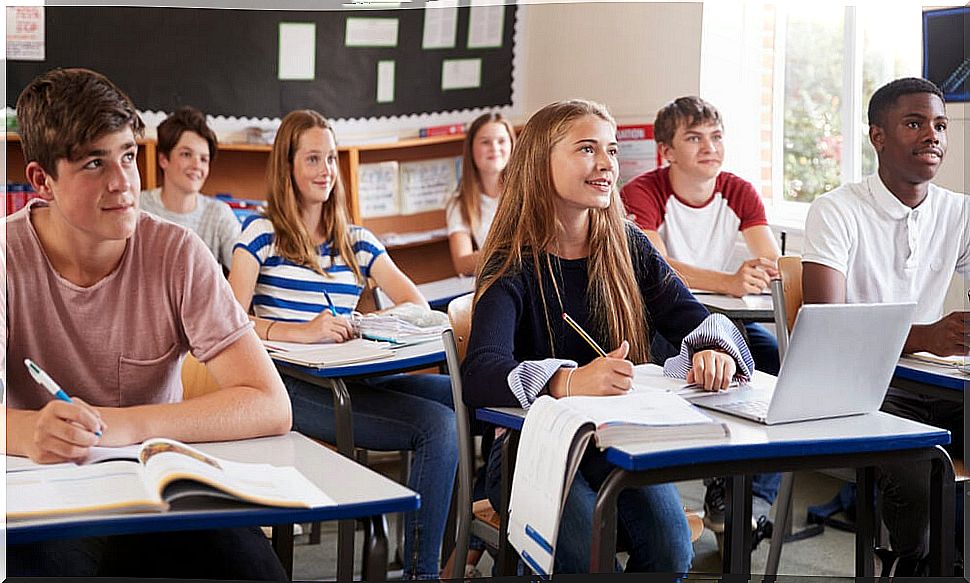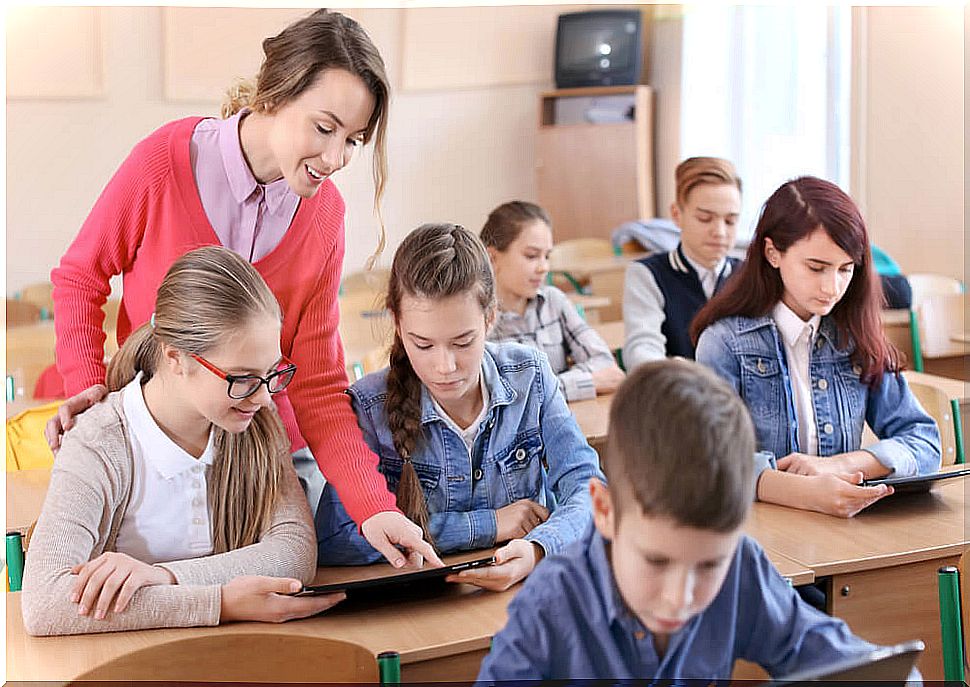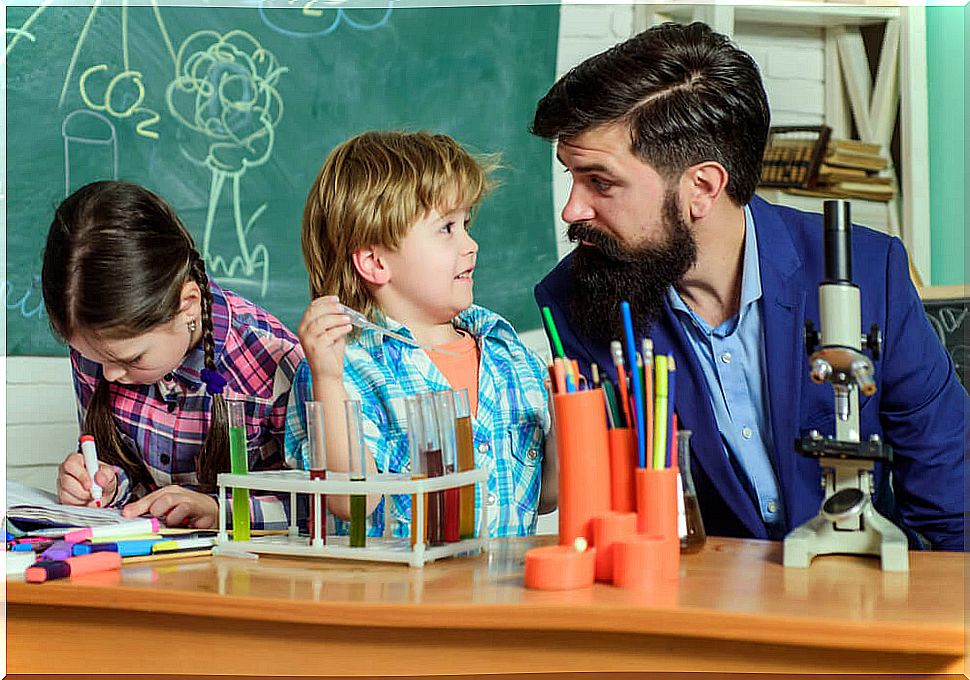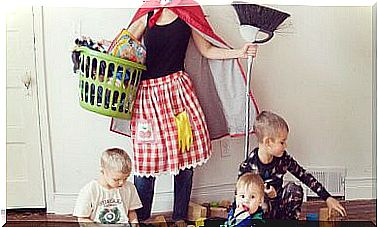Freinet Pedagogy

Célestin Freinet was a French teacher and pedagogue born on October 15, 1896 in a town in the French Maritime Alps. He developed a pedagogy that defended a natural education around life and connected with other social spheres such as family and politics. Mainly, Freinet pedagogy focused on respecting the child’s own nature and possibilities.
Main characteristics of Freinet’s pedagogical thought
The most distinctive feature of the pedagogy developed by Freinet is that of being an active pedagogy. That is to say, a pedagogy that constantly sought to link the school with the social environment, which was connected with family life and with the people.
As we have mentioned, Freinet’s pedagogical thinking focuses on the child and not on his educator. Which means a deep respect for the nature of the child, constant attention to their needs and an important methodological development around their activity.
In this sense, Freinet considered that school activities should awaken the interest of children so that they represent true learning for them.
Fundamental principles of Freinet’s pedagogy
Starting from the needs of the child and his training connected with life, Freinet, builds his pedagogy on some fundamental principles such as:

- Individualization. It involves a deep knowledge of the student and his personality, and the possibility of communication and expression by each child, of their particular needs and curiosities.
- Activity score experimental and autonomy ed. It implies that the child can discover new knowledge through search and activity. Thus, through trial and error, and the progressive learning of methods of analysis and synthesis, children will be able to become more and more autonomous and develop a critical spirit.
- Cooperation, participation and socialization. Freinet advocated team learning to learn better and to compensate for the differences generated by inequalities in the social environment. In addition, for Freinet, teamwork promotes constant socialization and, therefore, participation and the development of a sense of responsibility.
- School, life and functionality. For the pedagogue, the school had to be useful for life, and vice versa. In other words, the school must give answers to life situations, and life must be studied in the classroom. Because it is life that provides us with geographical, arithmetic, social, political, labor events, among others, on which to think and reflect at school.
The school, life and work connection
Influenced by socialist and Marxist thought, and by working-class currents, Freinet developed a popular pedagogy and defended a school for the people and work. Coinciding with the New School movement, its educational and pedagogical conception was a criticism of the traditional school.
As we have said, Freiner’s pedagogy was characterized by being very active. This implied coherence with a natural method, which in practice implied connecting the classroom with life outside of it, for which, Feinet carried out his pedagogical work through various activities that motivated children, activities that They will stimulate discovery, investigation, curiosity, and teamwork.
The “life skills” of Freinet
In accordance with his natural method, and with the activities with which Freinet wanted his students to experiment, the pedagogue devised and implemented very particular educational techniques, or work keys, with the aim of helping the little ones to develop to the maximum his creative capacity.
Among these techniques we highlight:

- Free text. A text made by the children themselves individually and in which they could express themselves freely on any subject. The texts were then read to the whole group to practice reading, intonation and modulation of the voice.
- School correspondence or printing. Freinet believed that free texts created by children should be shared with the people. Thus, he started a small and simple printing press that allowed children to disseminate their texts.
- Assemblies, conferences and work plans . The objective of these techniques or methodologies was to guide the group-class work together and to propose discussion and problem solving. For Freinet, these techniques served to achieve a better organization and general planning of the course.
- Library . Whose material was organized according to the different dynamics of the classes. Thus, students could freely consult books and magazines, as long as they kept order and care for everything.
- The workshops . Fundamental places for Freinet, so that students will connect the classroom with the work and social environment. For which, within the school, there were spaces for the use of tools and the learning of trades and professions.
On the legacy of Freinet’s pedagogy
The theoretical and practical contribution of the pedagogy developed by Freinet to the field of modern pedagogy and to a constructivist conception of learning is immense . His vision of a free child and that of an educator, mediator and guide to help him develop his capacities to the maximum is a great contribution to achieve meaningful learning in students.
In addition, it has not lost its validity, but on the contrary, since its vision of a school, its classrooms and students, organized in work teams, where cooperation and a sense of responsibility prevail are still present.
Nor has the need for a school connected with the world, with daily life and with work, has lost its validity today . A school capable of training critical and entrepreneurial people.










